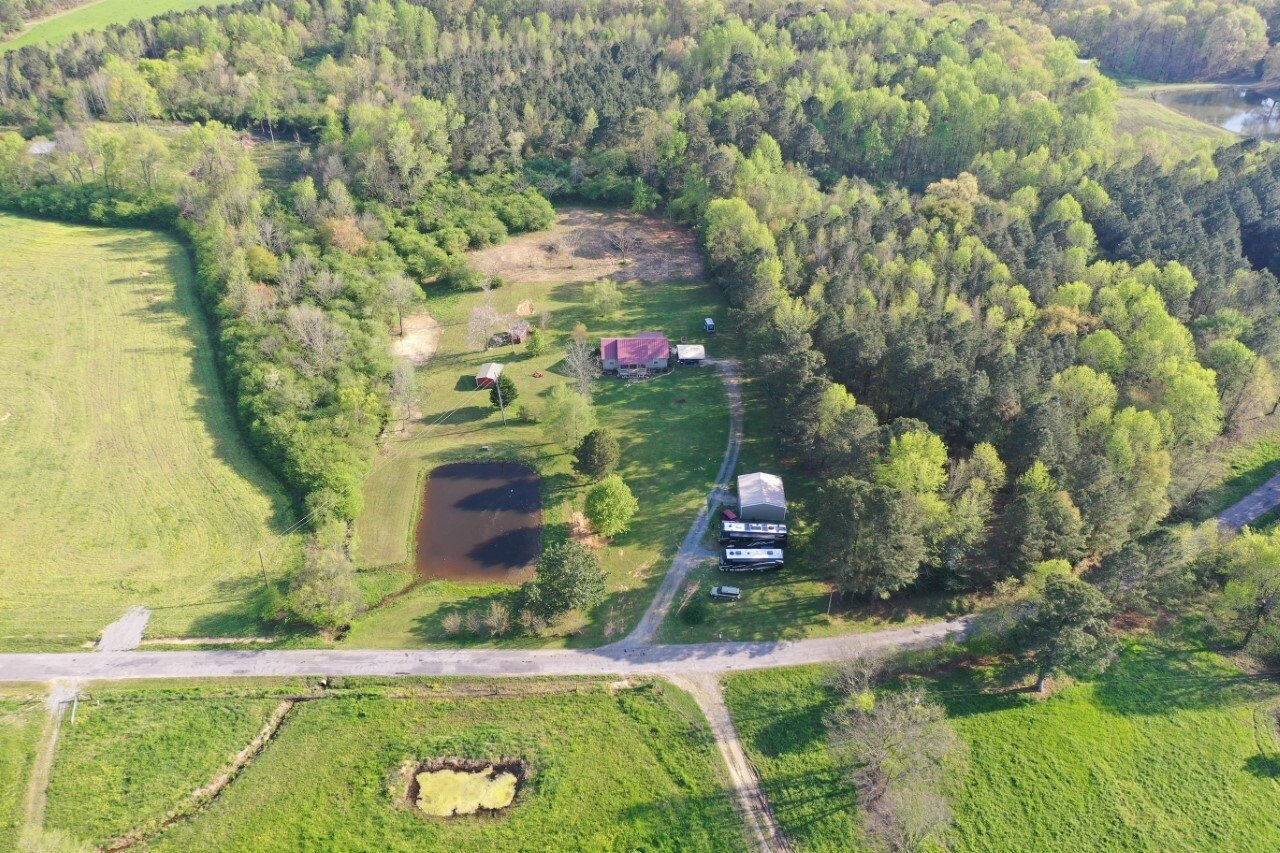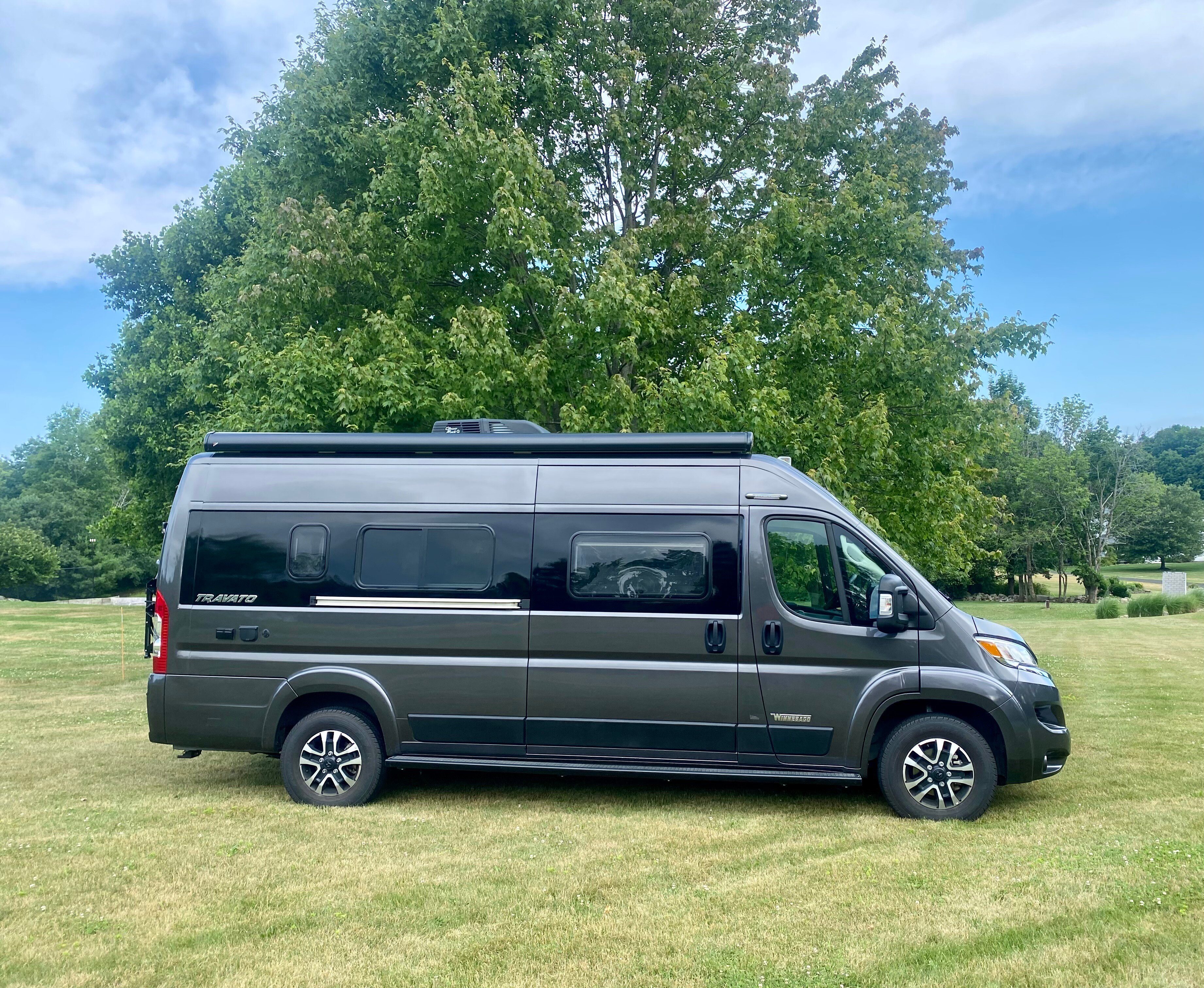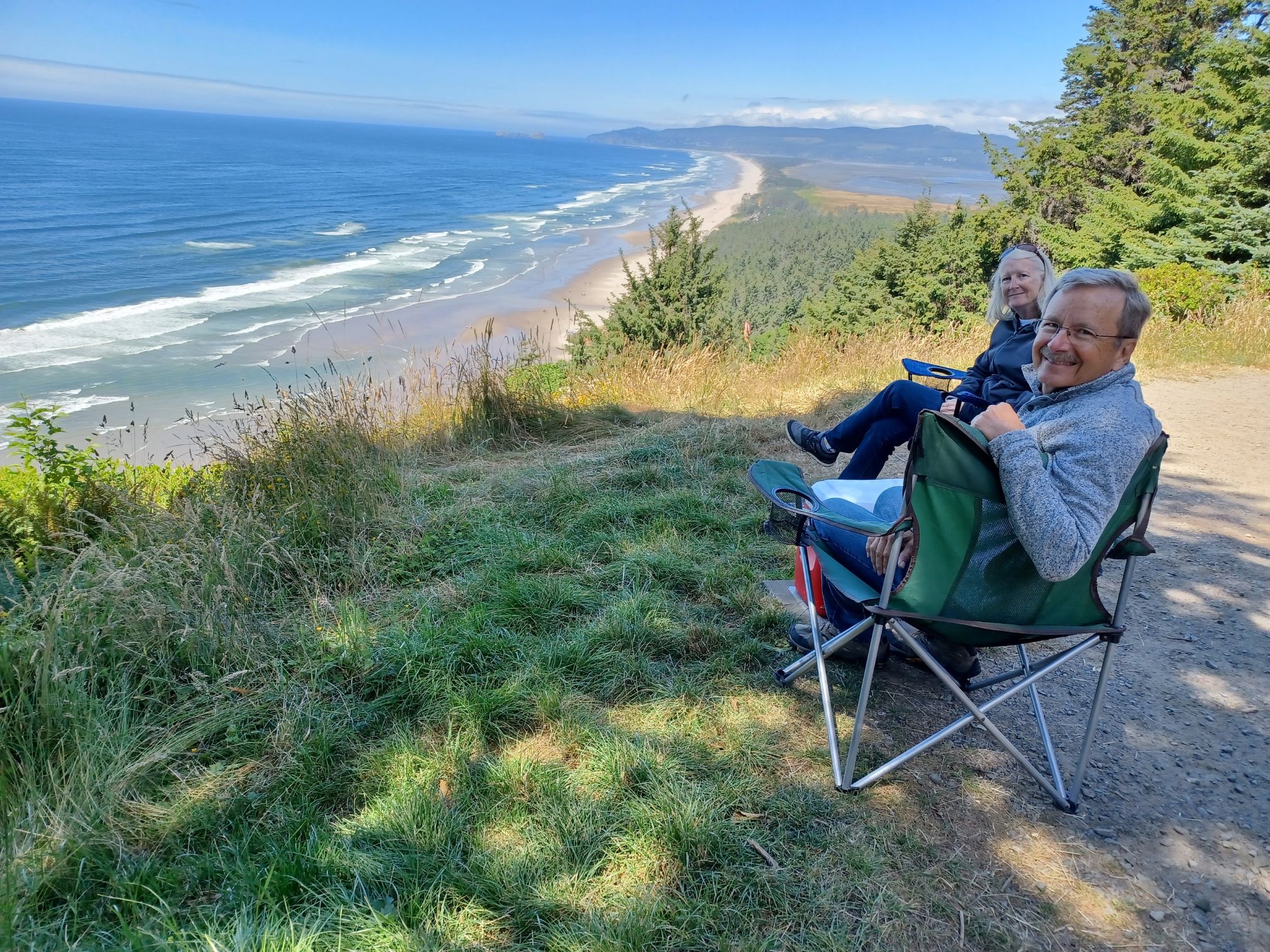Summer RV Electrical Need-To-Knows
Boondockers Welcome hosts are generous to a fault, but it’s unreasonable for guests to expect them to cover the cost of electricity to run A/C.
As we head into summer, we want to remind our traveling members that, whenever you use hookups, we expect you to offer to compensate your host for any costs. Each host should stipulate on their host location profile what they expect in compensation. They can select $5, $10, $15, or no donation requested. Please be sure you check this section on their profile so you know what to expect when you arrive.
You also NEED to know this before hooking up to hosts’ hookups!
Here are some important safety considerations for RVers who are using electric hookups.
How to avoid blowing out your RV electronics from a home electric hookups
All Boondockers Welcome hosts, and probably even more importantly, all guests who plan to plug in at a Boondockers Welcome host location, need to watch this short 2-minute video featuring RV tech and electrical engineer, Mike Sokal.
As the video states, an electrician who wires a 30- or 50- amp outlet may be accustomed to wiring them for home use (eg. for a dryer or welder), but be completely unaware of a very important difference if the outlet is intended for an RV. This can result in the outlet being wired for 240V instead of 120V. Here’s an image showing how similar the plugs are:
Be sure that your electrician (or that of your host) has wired this outlet up properly!
Three electrical testing devices all RV owners should carry and use
In this 2-minute video, FMCA technical advisor, Gary Bunzer, suggests RVers shouldn’t ever assume any outlet (whether at a campground or a Boondockers Welcome host location) is safe without performing these simple tests before plugging in.
Know your amperage!
Most RVs are set up to pull 30AMPs. However, there are some larger RVs that can pull up to 50AMPs. Most homes only offer outlets that pull 15AMPs. So, if you’re plugged into a 15AMP you will only be able to pull half the amps for an RV that pulls 30AMP. This means you will not be able to run multiple appliances and/or your A/C at once. Usually, with 15AMP you can run your microwave but not at the same time as your hairdryer. If you do, you will likely trip the hosts’ breaker leaving them and you without power.
Please know what amps you are pulling so you can prevent that from happening. Many new RVs have a digital read that tells you what amperage you are pulling. In some rigs, you could even set it to pull only a certain amount taking the guesswork out of it. You can certainly test what you can pull by plugging into your home’s electrical outlet. This will help you know if you are able to run your A/C or what appliances you can run while plugged into a 15 AMP outlet. Here is a great article that gives you an idea of what amperage each appliance draws.
Bottom line, be careful when plugging into a host location’s electrical outlet. Our hosts are not running a campground so they don’t have the same level of electric amperage to offer. This should go without saying but, never try to alter your host’s electrical unit to fit your amperage. That is very dangerous and inconsiderate of your gracious hosts.
The No-Shock-Zone. A 12-part series about basic electricity as it pertains to RVs
Finally, RV electrical expert Mike Sokol has a series of articles where he explains basic electricity and the precautions all RVers need to take before using any electric hook-up. Mike also publishes a weekly article in every RVtravel.com newsletter on Saturdays. Consider subscribing for other tips and advice on this subject.
The onus is on the RV traveler!
Finally, we’d like to remind all our traveling members, that the onus is on you (not the host) to know your rig’s electrical requirements and to use proper precautions before connecting to any electrical hookup provided by the host.
Learn More About Boondockers Welcome
We promise not to spam you!







Can I use an analog meter instead of a digital meter?
Actually a 50a plug in is 240V. Only the 30a is 120V.
I have always installed an on-board volt/amp monitor. I remember way back having the large analog gauges. These days, a simple digital meter can be installed so that monitoring is always active. This is a link to the one we use in our 30 amp fifth wheel.
https://www.amazon.com/gp/product/B01EWW1RJ4/ref=ppx_yo_dt_b_search_asin_title?ie=UTF8&psc=1
The reason I started charging for power, water, sewer and wifi is that in the beginning it was a trade. Folks with homes exchanging places to stay with free utilities. When I went to a host location I wasn’t charged for the utilities because I offered the utilities at my place for free. That changed after a while when we started having more folks show up that had no home bases and were living full time in the RV’s. For these “full timers” we were providing not only our space but utilities for free with no possibility of an exchange. We full timed in our moho for 6 years and enjoyed every minute of it. But… providing free utilities with no possibility of an exchange is not what I signed up for.
To keep me from dropping the group I started charging $10 per night for utilities to cover my labor and cost of providing them unless a guest owns a property and offers it in exchange. Then I don’t charge them anything even if they charge me when I go to their place. Most larger moho’s are mostly electric, the 30 amp that I offer is barely enough to provide them with power to heat and cool their RV. Many choose to use electric heaters at night rather than burn their propane and prefer to use the electric feature on their water heaters, thus becoming a very large “killowatt hour” user. My solar electric system and well are maintained by me. I provide filtered soft water at 40 to 60 psi for RV’s vs paying so much per gallon for city hard 80psi water. I have to work to maintain both systems.
Today, we mostly see “full timers” in larger rigs because most hosts limit the length of their guest rigs to 30 feet or less. Our rig is 38′ so we are not welcome at most BDW locations, no ones fault but my own.
I enjoy our visits from BDW guests, we often have a outdoor fire just a few feet from their rig door and watch the spectacular sunsets that we have here. I enjoy hearing about their adventures, family and their change to becoming full timers.
As we’ve said many times before, when we started BW we expected only that people would share as safe place to boondock. The fact that so many in our community are willing to provide electric hookups is amazing, and any guest who is lucky enough to stay with such a host is always expected to offer to compensate the host for their costs, although hosts are obviously welcome to decline their offer. As a host, you can certainly choose who to charge for electric hookup and who not to. We continue to hope that all our guests are grateful for anything and everything that our hosts offer. Thank you for being one of our amazing hosts!
Customers provide feedback about their shopping experiences via the Home Depot survey. After finishing, you can enter a $5000 lottery. homdpotcomsurveys.org
Would an analog doodle jump meter work in place of a digital one?
Indoor plants aren’t just decoration, they’re tiny powerhouses for your well-being! They naturally purify the air you breathe, reducing toxins and boosting oxygen. Plus, studies show plants can lower stress and improve your mood. [url= https://mygreenresort.com/%5D Buy indoor plants[/url] today – your lungs and mind will thank you for it!
Indoor plants aren’t just decoration, they’re tiny powerhouses for your well-being! They naturally purify the air you breathe, reducing toxins and boosting oxygen. Plus, studies show plants can lower stress and improve your mood. Buy Indoor Plants today – your lungs and mind will thank you for it!
Elevate your expertise with Osh University’s post graduate courses . Engage in meaningful research and advanced coursework, guided by a distinguished faculty. Osh is your gateway to a future of innovation and leadership in your chosen discipline.
You’re more likely to encounter a 30 amp RV electrical hookup system in smaller RVs, while fifth wheels and larger motorhomes are generally equipped with a 50 amp system fireboy and watergirl.
精准理解客户需求是作业代写 https://www.yydaixie.com 服务面临的重要挑战。每个客户的需求和背景各不相同,写作者需要在有限的时间内全面了解客户的具体要求,包括论文题目、研究方向、结构、格式和字数等。此外,客户可能会提供一些特殊的指导意见和参考资料,写作者需要在写作过程中准确无误地遵循这些要求。为此,代写机构应建立高效的沟通机制,确保客户与写作者之间的信息传递顺畅无误。通过详细的订单表格、在线沟通工具和及时的反馈系统,机构可以帮助写作者更好地理解和满足客户的需求,从而提高论文的准确性和满意度。
In light of Lowe’s study, the business determines and resolves instances in which customers are dissatisfied with retailers, goods, and services throughout their interactions with them.Lowe’s Companies, Inc. would be aware of its advantages and disadvantages based on the input and may create plans to obtain a competitive edge. Lowe’s Survey
HomeMaids is a leading cleaning service provider in Dubai, offering comprehensive and reliable solutions for both residential and commercial spaces. Our services include regular home cleaning, deep cleaning, and specialized tasks such as window cleaning and office cleaning. With a team of experienced professionals, HomeMaids ensures top-notch service with a focus on quality and customer satisfaction. We offer flexible cleaning options, including hourly maid services, tailored to meet your specific needs. Committed to using eco-friendly products and advanced cleaning techniques, HomeMaids delivers exceptional results, making your space cleaner, healthier, and more pleasant.
dubai maids
Most RVs are designed to operate on either 30AMP or 50AMP power sources. In contrast, standard home outlets provide only 15AMP power. This difference can significantly affect how many appliances you can run simultaneously in your RV. solar smash
UrbanHousekeeping offers top-notch cleaning services in Dubai, including regular house cleaning, specialized home cleaning, and deep cleaning. Our professional maids ensure your home remains spotless and healthy. Trust UrbanHousekeeping for reliable and efficient cleaning solutions.
https://urbanhousekeeping.com
Are you ready to talk about your ideas? Use the link that’s conveniently located on your Cracker Barrel receipt to visit crackerbarrelsurvey.com. Visit here Crackerbarrelsurvey
Since its establishment, Dunkin’ Donuts has been a well-liked brand, celebrated for its delectable coffee, donuts, and other confections. With more than 12,000 outlets globally, Dunkin’ has expanded throughout time to become a major player in the global market. Visit here DunkinRunsOnYou Survey
You may be honest about what you love and what you think might be spicier on this site. https://myopinion.autos/
You may wonder, “Why should I take the Subway Survey?” It is easy! Subway would like to hear about your experience and how they can improve for your next visit. https://subwaylistens.autos/
Fans of Panda Express, welcome! Have you had a great dinner at Panda Express lately and are you itching for more? I have some great news to share with you, though! Now,https://pandaguestexperience.autos/
FirehouseListens: Hello, devoted followers of Firehouse Subs! Have you ever wished to get compensated for sharing your thoughts about your mouthwatering Firehouse Subs experience? Fortunately, you are in luck! FirehouseListens is here to provide you with that chance. Visit here FirehouseListens Survey
Visualize this: You’re leaving Culver’s with a full stomach after enjoying a delicious supper. There’s more to this encounter, though!
Visit here Tellculvers Survey
The first McDonald’s restaurant debuted in California in 1940, thanks to the efforts of Richard and Maurice McDonald. This marked the inception of what would eventually grow to be the global restaurant franchise known as McDonald’s.
Visit here McDVOICE Survey
In the event that you suddenly recognized you weren’t enjoying yourself, use surveying to let the body know where you were. Visit here LongHornSurvey.com Survey
More than eleven thousand retail locations worldwide. Over time, Burger King’s menu has undergone changes. It has a lot more alternatives now than when it just had burgers, fries, drinks, and shakes. Visit here MyBKExperience